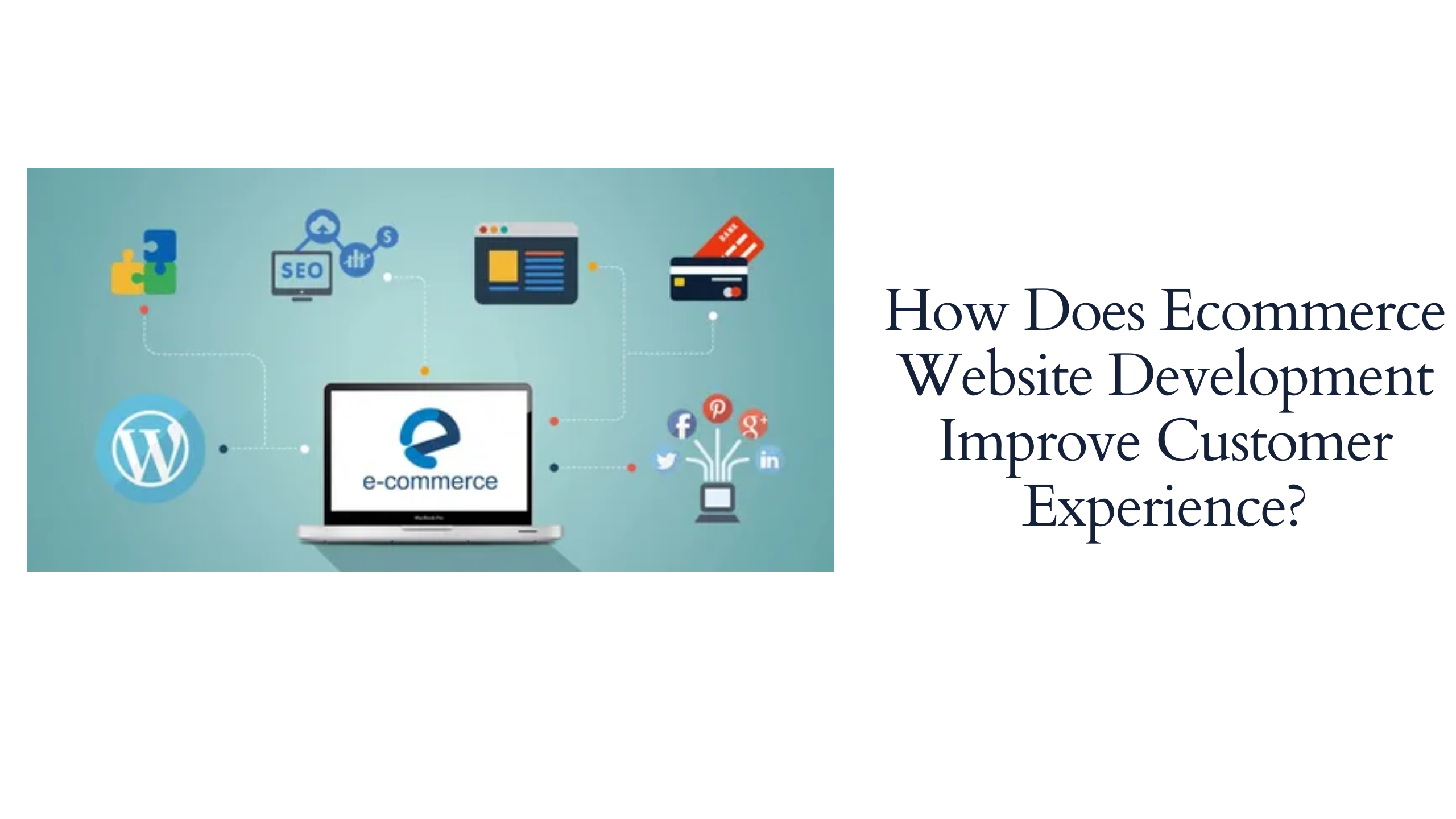In the modern digital marketplace, the success of an online business is heavily dependent on the quality of its website. Ecommerce websites are no longer just platforms for selling products—they are powerful tools for engaging customers, building trust, and providing a seamless shopping experience. With the increasing competition in the online retail space, businesses cannot afford to overlook the role of ecommerce website development in enhancing customer experience.
NOTE :- Businesses had relied on Ecommerce Website Development Dubai to create professional, user-friendly online stores. Websites were designed with responsive layouts, secure payment systems, and optimized performance. Website Development Company was trusted to deliver tailored ecommerce solutions that enhanced customer experience and drove measurable growth for businesses across Dubai’s competitive market.
Professional ecommerce website development focuses not only on functionality but also on usability, performance, and aesthetics. By leveraging best practices and advanced technologies, businesses can create online platforms that cater to the expectations of today’s consumers. This article explores how ecommerce website development improves customer experience and drives business growth.
Understanding Ecommerce Website Development
Ecommerce website development involves creating online platforms where businesses can sell products or services directly to customers. Unlike standard websites, ecommerce sites require features such as product catalogs, shopping carts, secure payment gateways, inventory management, and customer account systems.
A well-developed ecommerce website is intuitive, fast, and responsive, offering a smooth shopping journey from browsing to checkout. Experts in ecommerce development employ tools, plugins, and frameworks that optimize the website’s performance, security, and scalability while ensuring it aligns with the brand’s identity.
User-Centric Website Design
The design of an ecommerce website significantly impacts customer experience. Customers are more likely to engage with a site that is visually appealing, organized, and easy to navigate. Ecommerce website development focuses on creating user-centric designs that guide visitors intuitively through the buying process.
Design elements such as clear product categories, easy-to-read typography, high-quality images, and consistent branding improve usability. A well-thought-out design reduces confusion, encourages longer visits, and helps customers find the products they want quickly, directly enhancing satisfaction and engagement.
Responsive and Mobile-Friendly Experience
A large percentage of online shopping now occurs via mobile devices. Ecommerce website development ensures that websites are fully responsive, adapting seamlessly to screens of all sizes. Mobile-friendly designs enhance accessibility, allowing customers to browse, select, and purchase products from smartphones and tablets without frustration.
Responsive websites also contribute to better search engine rankings, as search engines prioritize mobile-optimized platforms. A seamless mobile experience not only improves usability but also increases trust, conversion rates, and overall customer satisfaction.
Fast Loading Speed
Website speed is a critical factor in customer experience. Slow-loading pages frustrate visitors and lead to higher bounce rates. Ecommerce website development focuses on optimizing performance to ensure fast loading times.

Techniques such as image compression, caching, optimized code, and content delivery networks (CDNs) are implemented to improve site speed. A fast website enables customers to navigate smoothly, complete purchases efficiently, and return for future shopping, making speed an essential element of a positive user experience.
Simplified Navigation and Search Functionality
A cluttered or confusing website can discourage customers from making purchases. Ecommerce website development emphasizes intuitive navigation and advanced search functionality. Categories, filters, and search bars are strategically designed to help users find products quickly.
Effective navigation reduces friction in the shopping journey, allowing customers to explore offerings effortlessly. By providing an organized structure and clear pathways, businesses ensure that visitors enjoy a seamless and satisfying browsing experience.
Personalized Customer Experience
Modern ecommerce development enables personalized shopping experiences. Websites can leverage customer data, browsing behavior, and purchase history to display relevant products, offers, and recommendations.
Personalization enhances engagement, encourages repeat purchases, and increases customer loyalty. By showing customers what they are most likely to be interested in, ecommerce websites can create a tailored experience that makes users feel valued and understood, strengthening their connection with the brand.
Secure Payment and Checkout Process
Security and ease of payment are critical components of customer experience. Ecommerce website development integrates secure payment gateways that protect sensitive information while providing multiple payment options.
A smooth and transparent checkout process reduces cart abandonment rates. Features such as guest checkout, auto-filled forms, and multiple payment methods make the buying process convenient and stress-free. Customers are more likely to complete purchases and return when they feel confident about the security of their transactions.
Integration with Customer Support
Customer support is an essential element of ecommerce success. Expert ecommerce development includes features like live chat, chatbots, contact forms, and easy access to help resources.
By providing immediate assistance and addressing queries in real-time, businesses can enhance trust and satisfaction. Seamless integration of support tools ensures that customers feel guided throughout their shopping journey, improving their overall experience and likelihood of returning.
Product Presentation and Information
The way products are presented on an ecommerce website directly influences customer decisions. Ecommerce website development focuses on creating detailed product pages with high-resolution images, videos, descriptions, specifications, and reviews.
Accurate and engaging product information helps customers make informed choices, reducing the likelihood of returns and complaints. Features like zoom, 360-degree views, and comparison tools enhance interactivity, making shopping both informative and enjoyable.
Enhanced Performance Through Analytics
Ecommerce websites developed by professionals often include analytics tools that track user behavior, conversion rates, and product performance. These insights allow businesses to continually optimize the website, improving navigation, product offerings, and marketing strategies.
By understanding customer preferences and behavior, businesses can make data-driven decisions that enhance the overall user experience, ensuring that the website evolves in line with customer expectations.
Scalability and Future Growth
As businesses grow, their ecommerce website must accommodate increasing traffic, new product lines, and advanced features. Ecommerce website development ensures that websites are scalable, capable of expanding without affecting performance.
Scalable infrastructure allows for the integration of additional tools, advanced e-commerce functionalities, and more complex workflows, ensuring that customers continue to enjoy a seamless experience even as the business evolves.
Trust and Credibility
A professionally developed ecommerce website builds trust and credibility among customers. Clean design, secure transactions, fast performance, and responsive support all contribute to a positive perception of the brand.
When customers feel confident in a website’s reliability, they are more likely to make purchases, share the platform with others, and return for future transactions. Trust is a critical component of customer experience, and professional development ensures that it is consistently maintained.
Competitive Advantage
In a competitive online market, a superior customer experience can differentiate a business from its competitors. Ecommerce website development provides tools and features that enhance usability, speed, security, and personalization, giving businesses an edge over competitors who neglect these aspects.
By prioritizing customer experience through professional development, companies can increase conversions, foster loyalty, and establish a strong online reputation.
Conclusion
Ecommerce website development is no longer just about creating an online store; it is about delivering a superior customer experience that drives engagement, trust, and loyalty. From responsive design, fast loading speed, and intuitive navigation to secure payments, personalized shopping, and analytics-driven optimization, every aspect contributes to how customers perceive and interact with a brand.
By trusting experts in ecommerce website development, businesses can ensure that their online platforms are not only visually appealing and functional but also optimized for long-term growth. A professionally developed ecommerce website enhances customer satisfaction, encourages repeat purchases, and strengthens brand credibility in the digital marketplace.
Investing in expert ecommerce website development services is, therefore, a strategic decision that directly impacts business success and customer retention. In a world where customer experience defines the success of online businesses, professional development ensures that every interaction is seamless, secure, and enjoyable.
For More Insightful Articles Related To This Topic, Feel Free To Visit: https://writoka.com/


